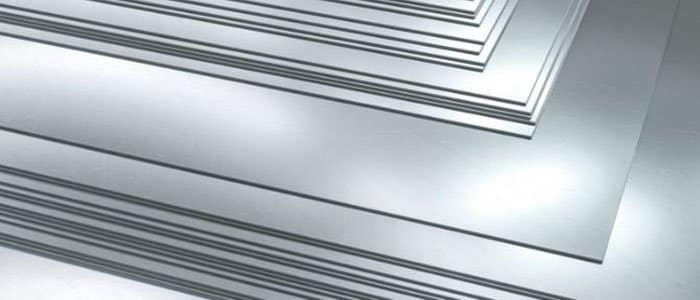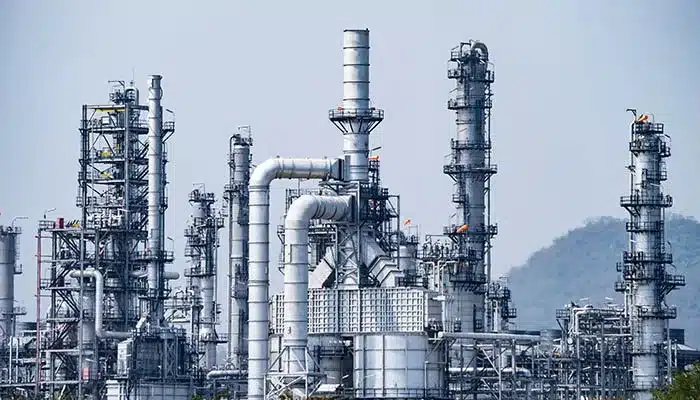In demanding industrial applications—from offshore platforms to pharmaceutical reactors—material selection determines operational longevity and safety. While stainless steel has long been the default choice, its limitations in aggressive chemical environments drive engineers toward advanced solutions. Grade 12 titanium (Ti-0.3Mo-0.8Ni) represents a strategic evolution: an engineered alloy that combines titanium’s inherent corrosion resistance with targeted alloying elements to conquer environments where stainless steel fails. This technical guide examines the metallurgical advantages, performance data, and economic case for specifying Grade 12 when conventional materials reach their limits.
What is Grade 12 Titanium? Deep Dive into Composition
Technical Definition and Material Science
Grade 12 titanium (UNS R53400), formally designated Ti-0.3Mo-0.8Ni, is a palladium-free corrosion-resistant titanium alloy engineered for severe chemical environments where stainless steels fail. Its precisely balanced composition delivers exceptional performance without expensive palladium additions:
- Molybdenum (Mo): 0.25–0.40% – Enhances resistance to reducing acids and stabilizes passive film
- Nickel (Ni): 0.60–0.90% – Synergizes with molybdenum to prevent crevice corrosion in chloride solutions
- Oxygen (O): Maximum 0.25% – Higher than CP grades for strength, yet controlled to maintain ductility
- Iron (Fe): Maximum 0.30% – Minimized to avoid galvanic corrosion risks
- Carbon (C): Maximum 0.08%
- Nitrogen (N): Maximum 0.03%
- Hydrogen (H): Maximum 0.015% – Critical for hydrogen embrittlement prevention
- Residual Elements: Each <0.1%, total <0.4%
- Balance: Titanium
Metallurgical Structure:
Grade 12 maintains a single-phase alpha structure (hexagonal close-packed) unlike alpha-beta alloys (e.g., Grade 5). This provides:
- Homogeneous corrosion resistance without galvanic risks between phases
- Superior weldability with no post-weld heat treatment required
- Stability up to 315°C (600°F) without phase transformations that degrade stainless steels
Governing Standards:
- ASTM B338: Seamless tubing for heat exchangers and condensers
- ASTM B381: Forged or rolled rings, bars, and blanks
- NORSOK M-001: Norwegian standard for offshore oil & gas (critical for seawater systems)
- ASME SB-338: Pressure vessel code compliance
Corrosion Showdown: Grade 12 vs. Stainless Steel
Laboratory Data from Real Process Environments
|
Environment
|
Grade 12 Titanium
|
316L Stainless Steel
|
2205 Duplex Steel
|
|---|---|---|---|
|
10% HCl at 70°C
|
0.001 mm/year
|
12 mm/year (catastrophic)
|
8 mm/year (rapid pitting)
|
|
Seawater (flowing)
|
Immune to crevice corrosion
|
Severe crevice attack >30°C
|
Moderate crevice corrosion
|
|
Wet Chlorine Gas
|
No attack at 90°C
|
Stress corrosion cracking
|
Pitting initiation at 60°C
|
|
Sodium Hypochlorite (15%)
|
Fully resistant
|
Heavy pitting
|
Moderate corrosion
|
|
pH Range Tolerance
|
1–14 (all temperatures)
|
Fails below pH 2 or >80°C
|
Fails below pH 3 or >60°C
|
Why Stainless Steel Fails Where Grade 12 Prevails
- Chloride Stress Corrosion Cracking (SCC): Stainless steels crack at chloride levels >10 ppm above 60°C. Grade 12 remains immune even in 100,000 ppm brine.
- Crevice Corrosion Threshold: 316L fails in seawater crevices at 35°C. Grade 12 withstands 110°C in identical conditions.
- Galvanic Compatibility: Grade 12 can be directly bolted to carbon steel without corrosion—unlike stainless steel which accelerates carbon steel rust.
The Total Cost of Ownership Advantage
Case Study: Chemical Reactor Vessel (10,000L capacity)
Although Grade 12 titanium alloy costs approximately 2.5 times more per kilogram than 316L stainless steel, its long-term cost benefits far exceed those of stainless steel. Let’s illustrate this with a cost calculation example:
|
Cost Factor
|
316L Stainless
|
Grade 12 Titanium
|
|---|---|---|
|
Initial Material Cost
|
$48,000
|
$125,000
|
|
Expected Service Life
|
3 years
|
18+ years
|
|
Downtime Cost/Year
|
$220,000 (2 failures)
|
$15,000 (preventive)
|
|
Maintenance Labor
|
$85,000/year
|
$12,000/year
|
|
Total 10-Year Cost
|
$3,635,000
|
$527,000
|
As demonstrated by the examples, the long-term cost of Grade 12 titanium alloy is significantly lower than that of stainless steel.
Critical Applications Where Grade 12 Dominates
- Chemical Processing:
Hydrochloric acid distillation columns (handles 20% HCl at 110°C where Hastelloy C-276 fails)
Chlor-alkali electrolytic cells (replaces graphite anodes with 3x longer life) - Oil & Gas:
Downhole safety valves in sour gas wells (NACE MR0175 compliant for H₂S service)
Seawater injection manifolds (NORSOK M-001 certified for 30-year offshore life) - Marine:
Naval condenser tubes (immune to barnacle-induced crevice corrosion)
Subsea hydraulic umbilicals (survives 3,000m depth with no hydrogen embrittlement) - Power Generation:
Flue gas desulfurization (FGD) scrubbers (resists 180°C sulfuric acid mist)
Geothermal brine heat exchangers (handles 250°C brine with 200,000 ppm chlorides)
Conclusion: The Strategic Advantage of Grade 12 Titanium
Grade 12 titanium (Ti-0.3Mo-0.8Ni) fundamentally redefines material performance in corrosive environments. Its nickel-molybdenum chemistry creates a self-repairing oxide layer that eliminates chloride stress corrosion cracking and crevice corrosion mechanisms that plague stainless steels.For engineers designing chemical reactors, offshore systems, or power generation equipment, Grade 12 isn’t a premium option; it’s the only solution that guarantees decades of uninterrupted service in the harshest conditions.
For critical applications demanding absolute corrosion resistance, material integrity is non-negotiable. Daxun Alloy Co., Ltd. supplies fully certified Grade 12 titanium, with each batch undergoing triple-verified quality control through chemical analysis, corrosion testing, and weld inspection, compliant with ASTM/ASME standards. Contact Daxun Alloy Co., Ltd. immediately for the best sales service.




